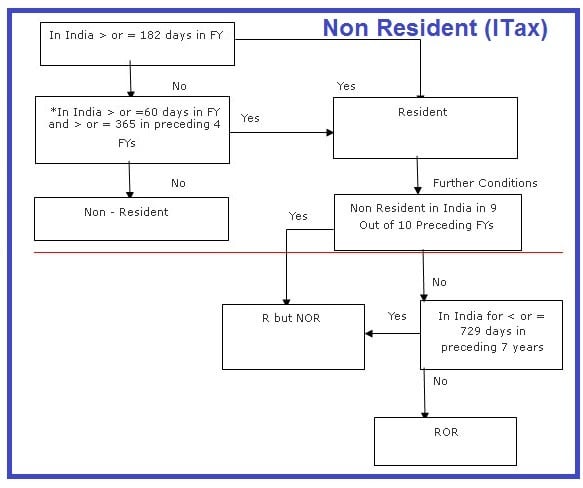Unraveling the Complexity of Residential Status under the Income Tax Act
INCOME TAX


In the intricate world of modern finance, comprehending one's residential status under the Income Tax Act stands as a pivotal obligation. This status serves as the bedrock on which your tax liability is constructed within a specific nation. Whether you're an individual seeking clarity or a business entity striving for transparency, the nuances embedded in this concept are indispensable for both compliance with tax regulations and the optimization of tax strategies.
Deciphering Residential Status under the Income Tax Act
Residential status, as delineated by the Income Tax Act, functions as the linchpin determining whether an individual or an entity should be subjected to taxation within a particular jurisdiction. This classification categorizes individuals into three primary segments: resident, non-resident, and ordinarily resident. Each category bears distinct ramifications on the taxation of income, eligibility for deductions, and the adherence to regulatory obligations.
The Crux of Residential Status: Key Aspects
Physical Presence: The temporal span an individual spends within a nation during a fiscal year emerges as a pivotal determinant of their residential status. These quantifiable days are evaluated based on an individual's actual physical presence within the geographical boundaries of the country.
Citizenship and Nationality: Certain nations consider an individual's citizenship or nationality as a contributing factor when ascertaining their residential status. Holding citizenship or nationality within a specific country might augment the likelihood of being classified as a resident.
Financial Entanglements: Financial ties to a nation, encompassing property ownership or substantial investments, can exert influence over an individual's residential status. These financial connections underscore a deeper integration into the economic framework of the country.
Intent and Purpose: The underlying intent behind an individual's stay within a nation can significantly sway their residential status determination. Even if an individual's physical presence doesn't strictly meet conventional criteria, their intent to establish a prolonged residence can impact the classification.
Exploring Distinct Residential Status Categories
1. Resident Status
Resident status is conferred upon individuals who satisfy the stipulated criteria for physical presence or fulfill conditions outlined by the tax authorities. Residents are subject to comprehensive taxation, encompassing global income. This encompasses all sources of income, irrespective of their origin, making them liable for taxation.
2. Non-Resident Status
Non-residents constitute individuals failing to meet the criteria for resident status. Their tax liability is typically confined to income generated within the borders of the country, exempting them from the obligation of paying taxes on foreign-earned income.
3. Ordinarily Resident Status
Several nations introduce the concept of an "ordinarily resident." This classification encompasses individuals who are residents and have sustained a considerable residence period over the preceding years. Tax implications for ordinarily residents can vary, often navigating a middle ground between residents and non-residents.
The Significance of Accurate Residential Status Determination
Miscalculating your residential status can lead to severe repercussions, ranging from tax underpayment or overpayment to fines and legal consequences. Precise determination is not only vital for adhering to tax regulations but also for making informed financial choices that align with your legal obligations.
Navigating the Path to Residential Status Determination
Methodical Record-Keeping: Maintaining meticulous records of the days spent within each country holds paramount importance. These records serve as foundational evidence for determining your residential status.
Grasp Tax Treaties: Individuals navigating between countries, such as expatriates, must gain a comprehensive understanding of tax treaties between their home country and the host nation. These treaties can significantly influence the taxation of income.
Professional Counsel: Seeking guidance from tax experts specialized in international taxation can prove invaluable. Their expertise can assess your unique circumstances, accounting for multifaceted factors, and facilitate an accurate residential status determination.
In Closing
In the dynamic landscape of financial operations and taxation, an astute grasp of your residential status under the Income Tax Act emerges as a linchpin of prudent financial stewardship. This status shapes your tax obligations, underpins your eligibility for deductions, and underscores your overall compliance with tax laws. Always bear in mind that precise classification necessitates meticulous attention, legal comprehension, and sometimes, professional intervention.
Want to calculate your residential status, click on the link



